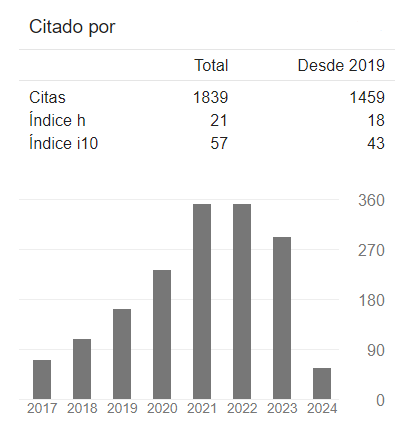The protection of the principle of freedom over decisions of the constitutional court : the case of the dictum about the liberalization of the voluntary termination of the pregnancy
DOI:
https://doi.org/10.24142/raju.v9n19a6Keywords:
Freedom, Constitutional State, voluntary termination of the pregnancy, constitutional foregoing, Philosophy of the LawAbstract
This paper delivers the results of the finished research that took as a topic the analysis of the decisions taken by the Constitutional Court of Colombia over object things outside of constitutional order, in order to resolve the law suits against the penal kind of abortion. The analysis of such decisions starts from the valuation of whether the Constitutional Court have had in mind in its argumentation the discussion around the freedom of women of terminating a pregnancy, taking as starting points the discussions that, from the philosophy, have been given about freedom; and the foregoing of the Court, especially those in which the Court have resolved other conflicts of principles, decided giving priority to the principle of freedom. The analysis on the pronouncements of the Court allowed to deduce that the Corporation haven’t had in mind a valuation of the freedoms as a constitutional center of debate, and its Thesis started from an extreme conservative gaze to a moderate thesis in the 2006’s Judgment. In this Analysis the start point is a critic analysis of the Jurisprudence from a pattern of documental analysis.
References
Bernal, C. (2005). El derecho de los Derechos. Bogotá: Universidad Externado de Colombia.
Bourdieu, P. (2000). La fuerza del Derecho. Bogotá: Ediciones Uniandes.
Cook, R. (1997). “La responsabilidad del Estado según la convención sobre la eliminación de todas las formas de discriminación contra la mujer”. En: Derechos Humanos de la Mujer. Bogotá: PROFAMILIA.
Corte Constitucional. Sentencia, C-133 de 1994.
Corte Constitucional. Sentencia C-221 del 5 de mayo de 1994.
Corte Constitucional. Sentencia, C-355 de 2006.
Dworkin, R. (1989) Los derechos en serio. Barcelona: Ariel.
Jaramillo, I. (2000). La crítica feminista al Derecho: Estudio preliminar. En: R. West. Género y Teoría del Derecho. Bogotá: Siglo del Hombre Editores, Ediciones Uniandes.
Jaramillo, I. y T. Alfonso (2008). Mujeres, cortes y medios: la reforma judicial del aborto. Bogotá: Siglo del Hombre.
López, D. (2006). El Derecho de los jueces. Bogotá: Legis.
Moral, L. (2002). El precedente judicial. Madrid: Ediciones Maricial Pons.
Motta, C. y M. Sáez (eds. académicas) (2008). La mirada de los jueces: género en la jurisprudencia latinoamericana. Bogotá: Siglo del Hombre.
Pabón, A. y J. Aguirre (2007). Justicia y derechos en la convivencia escolar. Bucaramanga: Universidad Industrial de Santander.
—————— (2008). “Sistemas especiales de admisión en las universidades: un desafío por la consolidación del derecho a la igualdad material en el acceso a la educación superior”. Revista Estudios de Derecho. Medellín: Universidad de Antioquia. Vol. LXV. Núm. 16.
Pabon, A.; J. Aguirre y J. Granados (2011). La protección jurisprudencial a la maternidad. Bucaramanga: Universidad de Santander.
Rawls, J. (1996). Liberalismo político. Bogotá: Fondo de Cultura Económica.
—————— (1997). Teoría de la justicia. Bogotá: Fondo de Cultura Económica.
—————— (2001). La justicia como equidad. Una reformulación. Barcelona: Paidós.
Tribe, L. (2012). El aborto: Guerra de absolutos. México: Fondo de Cultura Económica.
Uprimny, R. (1997). “Estado social de Derecho y decisión judicial correcta”. En: Hermenéutica Jurídica. Bogotá: Ediciones Rosaristas.
Urbina, F. (2008). “Rawls y una disputa sobre derechos”. Revista Persona y derecho: Revista de fundamentación de las Instituciones Jurídicas y de Derechos Humanos. Núm. 58. Disponible en: http://dspace.unav.es/dspace/bitstream/10171/17338/1/35048214.pdf.
Valdés, M. (2001). “Aborto y personas”. En: Controversias sobre el aborto. México: Fondo de Cultura Económica.
Velásquez, M. et al. (1995). Mujeres, historia y política. Bogotá: Norma..
West, R. (2004). Género y teoría del Derecho. Bogotá: Ediciones Uniandes, Instituto Pensar, Siglo del Hombre.
Downloads
Published
How to Cite
Issue
Section
License
La rivista consente all'autore (s) di mantenere i diritti di pubblicazione senza restrizioni.
Le journal permet à l'auteur (s) de conserver les droits de publication sans restrictions.
The journal allows the author (s) to retain publication rights without restrictions.
La revista le permite al autor(es) retener los derechos de publicación sin restricciones
Die Zeitschrift ermöglicht es dem / den Autor (en), Veröffentlichungsrechte ohne Einschränkungen zu behalten.
A revista permite que os autores mantenham os direitos de publicação sem restrições.











































